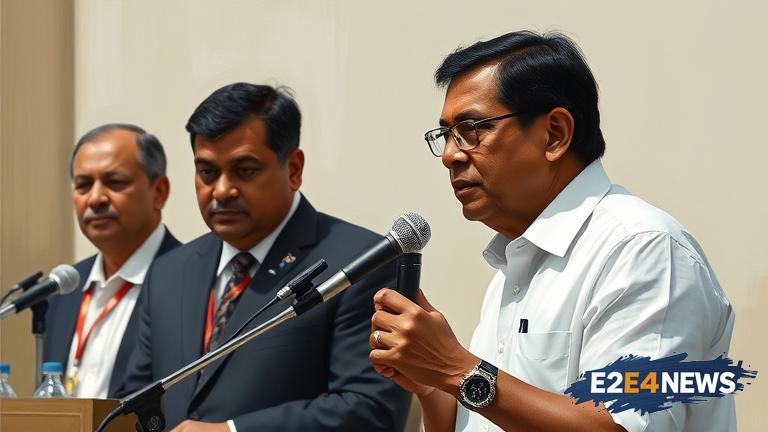The Presidential Commission of Inquiry, established to investigate various issues, has been eclipsed by sideshows and controversies. The commission, which was set up to probe into several high-profile cases, has been facing numerous challenges and criticisms. Despite its importance, the commission’s work has been overshadowed by various controversies, including allegations of political interference and bias. The commission’s members have also been criticized for their handling of certain cases, with some accusing them of being too soft on certain individuals. Furthermore, the commission’s proceedings have been marred by disruptions and walkouts, which have further hindered its progress. The opposition has been vocal in its criticism of the commission, accusing the government of using it as a tool to target its political opponents. The government, on the other hand, has defended the commission, saying it is committed to uncovering the truth and ensuring justice. The commission’s work has also been affected by the COVID-19 pandemic, which has caused delays and disruptions to its proceedings. Despite these challenges, the commission has made some progress, with several key witnesses testifying before it. However, the commission’s findings and recommendations are yet to be made public, which has raised concerns about transparency and accountability. The commission’s effectiveness has also been questioned, with some arguing that it lacks the teeth to take meaningful action. The government has assured that the commission’s recommendations will be implemented, but the opposition remains skeptical. The controversy surrounding the commission has also sparked debates about the role of such commissions in Sri Lanka’s justice system. Some have argued that such commissions are necessary to ensure accountability and transparency, while others have questioned their effectiveness. The commission’s fate remains uncertain, with some predicting that it will be disbanded or its findings ignored. The international community has also been watching the commission’s proceedings with interest, with some expressing concerns about the rule of law and human rights in Sri Lanka. The commission’s outcome will have significant implications for Sri Lanka’s political landscape and its efforts to promote justice and accountability. The country’s history of impunity and corruption has made it difficult to ensure that those responsible for wrongdoing are held accountable. The commission’s success or failure will be closely watched, both locally and internationally, as it has the potential to set a precedent for future investigations and prosecutions. The government’s commitment to the commission’s work and its willingness to implement its recommendations will be crucial in determining its effectiveness. The opposition’s role in supporting or opposing the commission’s work will also be important, as it has the potential to influence the commission’s outcome. The commission’s impact on Sri Lanka’s justice system and its ability to promote accountability and transparency will be significant, and its outcome will be closely watched by all stakeholders.
